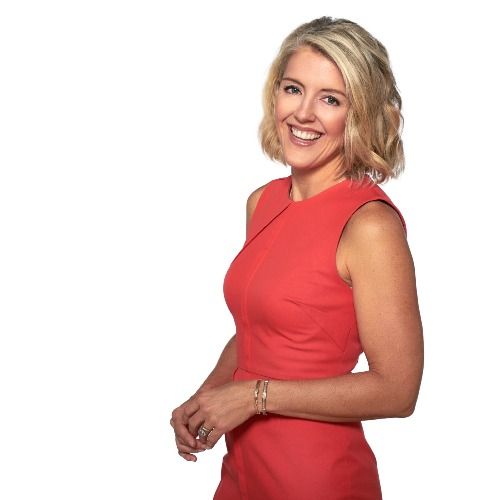⚡️MINI⚡️How Psychedelics Rewire Cellular Memory to Heal Pain, Trauma, Addiction
Microdosing Plant Medicine for Pain, Addiction, Perimenopause Symptoms
Maya Shetreat, M.D. is a neurologist and expert in plant medicine and psychedelics. Learn how ayuascha, magic mushrooms (psilocybin) and other master plants can heal trauma, chronic pain, perimenopause symptoms and other mental and physical conditions.
DISCLAIMER: this episode is for entertainment purposes only. It is not intended to prescribe or direct.
🎧 GET THE FULL EPISODE HERE
📝 SHOW NOTES: www.onairella.com/post/327-microdosing
🌟 Guest: Dr Maya
🔔 SUBSCRIBE/FOLLOW in this app to get full-length, weekly episodes!
--------------------------------------
🎧 Free Custom Playlist - grab yours here.
-----------------------------------
👭 Join us for our next women's event in DC! Get on the waitlist HERE.
💟 Treat Ella to a Coffee? For the cost of a cup of ☕️ you can help us grow - thank you! Make your donation here.
🛍️ DISCOUNTS & PROMOS - shop, save and support:
- Build and keep muscle. Shop Kion Amino Acids - promo code ONAIRELLA
- "SLEEPYTIME" Kill Switch Hot Chocolate - I LOVE this stuff!!!
>>> See all of my discounts & recommended brands right here!
-----------------------------------
On Air With Ella is for women who want to feel better, look better, live better - and have more fun doing it. This is where we share simple strategies and tips for living a bit better every day. If you’re interested in mindset and wellness, healthy habits and relationships, or hormone health, aging well and eating well, then you’re in the right place.
Connect with Ella:
☎️ Leave a voice message: +1 (202) 681-0388
Transcript
Welcome to this On Air with Ella Minisode, a little bite sized boost to your day.
Ella:Always quick, always thought provoking, and always under 10 minutes.
Ella:Let's go.
Dr. Maya:So, generally speaking, probably the best way to say what's happening is we have cellular memory in our bodies.
Dr. Maya:And I know we'll go more into that, but our cells kind of remember what's happened to us over the course of our lifetimes.
Dr. Maya:And this can even be from generations before.
Dr. Maya:Right.
Dr. Maya:We know this, this is science.
Dr. Maya:This isn't like a woo woo thing.
Dr. Maya:And what psychedelics can do is basically allow for us to have rewiring of our whole system, both on a neurological level and on a physical level, on a physiologic level, so that we can create new patterns, whether physiologic or mental or behavioral.
Ella:Dr.
Ella:Amaya, can you give me an example?
Ella:What I pick up anecdotally is that people who engage with either macro dosing experiences, like an ayahuasca retreat, and micro dosing experiences, which I'll have you explain in a moment, they are unlocking trauma, which you said we can't talk our way out of trauma.
Ella:I imagine that the verb we're searching for is actually to release it in some way.
Ella:And you're saying that cellular memory is holding on to past experiences, to.
Ella:To generational trauma, to our own experiences, and that that has to be released if we truly want to move past it.
Ella:I don't know if I'm doing a good job here.
Ella:You tell me in your words, Effy.
Dr. Maya:Yeah.
Dr. Maya:We don't realize that ourselves.
Dr. Maya:They speak a lot of languages, they understand a lot of languages.
Dr. Maya:They understand physical insults.
Dr. Maya:Right.
Dr. Maya:But they also understand mental, emotional and spiritual instigators.
Dr. Maya:We think, oh, we should only be having a physical problem if there's a physical insult.
Dr. Maya:No, it turns out our cells understand lots of languages, but the way that they speak the.
Dr. Maya:What they communicate is physical symptoms and mental health symptoms.
Dr. Maya:That's kind of how they transmit and interpret these memories that they're holding.
Dr. Maya:So what ends up happening is we can end up with these chronic physical or mental health conditions that feel like, well, that's just who I am.
Dr. Maya:You know, I have this autoimmune condition, or I have gut problems, or I have depression, or I have addiction, when in fact it's actually something embedded in us.
Dr. Maya:But not permanent.
Dr. Maya:It does not have to be permanent.
Dr. Maya:And so the idea is what these plant medicines can do is they can open up these periods of plasticity that are normally only something we can open during Childhood.
Dr. Maya:The problem with those periods which are otherwise great is that if something bad happens during those periods, they embed in us in a way that later in, it's far less likely such an experience would really embed.
Dr. Maya:So what these plant medicines can do is reopen these periods of plasticity temporarily.
Dr. Maya:And if we have the right container, the right support.
Dr. Maya:And this is a very important part, right, because it's the part about being really responsive is having the right support before, during, after.
Dr. Maya:Every study that you'll see that shows success, all the impressive results always have support, professional support, before, during, and after.
Dr. Maya:But when you have the right support, what happens to that cellular memory is less you release it and more you make meaning of it and therefore rewire.
Dr. Maya:So you'll be like, my mother did this thing, which maybe was terrible, and maybe it was not actually so terrible, but it, it felt terrible.
Dr. Maya:Trauma does not have to be, you know, you had violent behavior towards you or something.
Dr. Maya:It can just be an experience that felt terrible to you and you embedded it.
Dr. Maya:But you can say, oh, you know, many things, many times what people will experience during a journey would be, oh, I see that my mother loved me even though she did this thing.
Dr. Maya:I have compassion.
Dr. Maya:And somehow that takes them down a road, that allows them to in some way live more peacefully with what.
Dr. Maya:You can't erase what happened, right?
Dr. Maya:You can't release what happened, but you can alchemize it, make meaning of it.
Dr. Maya:And that's the idea, right?
Dr. Maya:And then moving forward, that allows you to rewire and recalibrate, and that helps people to actually release very quickly, in some cases, lifelong conditions that have been debilitating, that they've been suffering from.
Ella:And what are they?
Ella:Microdosing, Dr.
Ella:Maya, in general, most commonly.
Dr. Maya:The psilocybe mushrooms, right, the magic mushrooms, but not in psychedelic doses.
Dr. Maya:The idea of microdosing is you can function, you can function in your life and you're getting the plasticity, you're getting some of the, you know, sense of wonder and lifted mood and other things, but without being altered in that way or kind of risking the bad trip or other kind of experience.
Ella:So you're micro dosing, literally, and you're going on about your business, except for that first time where you're trying to figure out what dosing looks like for you.
Ella:Now, this, of course, sounds like something that could go very, very wrong.
Ella:It's left to our own devices.
Ella:I mean, are people doing this under the supervision of a practitioner or.
Ella:Sorry, ideally, I know people are going to do whatever they want to do.
Ella:But in your opinion, is this ideally done with guidance?
Dr. Maya:It's really important to start an experience with somebody who knows what's what and can guide you and can answer your questions.
Dr. Maya:It can make sure you're doing everything safely.
Dr. Maya:But in general, this is something ultimately that people can do without the same level of risk.
Dr. Maya:Most people have perfectly fine experiences, but sometimes the shifts take a little bit more unpacking, right?
Dr. Maya:It's not like you're suddenly gonna see, you know, your whole life flash before you kind of thing like people might have in a bigger journey.
Dr. Maya:It's going to be this sort of more gradual revelation.
Dr. Maya:But I will say, just from a clinical standpoint, I've seen people who have been mired in, let's say, postpartum depression for months and months and months and really unable to function within just a few doses.
Dr. Maya:I've seen them absolutely shift and feel like life feels worth living again.
Dr. Maya:I mean, I've seen people in perimenopause.
Dr. Maya:This is another topic, you know, that I think microdosing could not be more valuable.
Dr. Maya:I think there's been so little available to support us through these huge identity shifts.
Dr. Maya:You know, coming into motherhood, leaving that phase of fertility and going into this, whatever is next that, you know, I'm currently in.
Dr. Maya:And it's difficult.
Dr. Maya:It's difficult to have these massive shifts in identity that I don't think men experience in the same way physiologically or socially in our society.
Dr. Maya:So I've just seen such powerful benefit with microdosing, and it's really low risk.
Dr. Maya:So in general, so with the right support, I think it's a really wonderful option.
Ella:Can you name a few more conditions people come to you for microdosing that you see unlocked or you see them get past a barrier?
Ella:Give us.
Ella:Give us some more examples, if you would.
Dr. Maya:Chronic pain, migraines, depression, anxiety, eating disorders, obsessions.
Dr. Maya:Right?
Dr. Maya:Ocd, autoimmunity.
Dr. Maya:I've seen real shifts with people who have autoimmunity.
Dr. Maya:So, you know, right now, I mean, in the chronic pain department, people who have trigeminal neuralgia, people who have migraines, people who have cluster headaches, people who have chronic fatigue, all of these kinds of conditions are now being looked at with microdosing.
Dr. Maya:Dementia is now on the table as a possible condition that benefits from microdosing.
Dr. Maya:So it's not going to be the answer to every single problem, but I would say it opens these portals, right, where there's potential to experience real shifts.
Dr. Maya:And usually for conditions that we really just don't have treatments for in Western medicine.
Ella:How does plant medicine address chronic pain?
Ella:Why would that even work?
Dr. Maya:There are a lot of possible answers to that.
Dr. Maya:Let's just say that a big part of pain, especially chronic pain, is related to perception.
Dr. Maya:And, and pain is also going back to what I said before, that the cell, the cells understand a lot of languages, mentally, emotional, spiritual, but they don't always communicate the problem mentally, emotionally, spiritually.
Dr. Maya:We experience it physically like pain, but we can be in emotional and spiritual pain.
Dr. Maya:That does not make our physical pain not real.
Dr. Maya:It's just the way our cells are translating it.
Dr. Maya:This is working literally by shifting our cellular memory, our plasticity and recalibrating, rewiring things so that we don't have to experience the pain because we've processed in a different way.
Dr. Maya:And just from a physiologic standpoint, it's anti inflammatory.
Dr. Maya:There are powerful anti inflammatory benefits through one of the major compounds in many psychedelics is called DMT.
Dr. Maya:It turns out that DMT act activates this receptor called the sigma 1R.
Dr. Maya:This is not the USA Today version, but it is the sigma 1R receptor that actually is very important for mitochondrial health and actually is related to many, many chronic diseases.
Dr. Maya:So what we're seeing is DMT which in many of these plant medicines, essentially it acts as an indirect antioxidant in a very powerful way.
Ella:Thanks for joining me for this mini episode of On Air with Ella.
Ella:Tune in for our full episodes once a week.
Ella:See you next.




